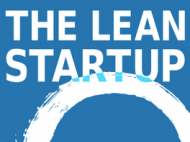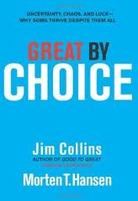|
I had the pleasure of attending Eric Ries's "Lean Startup Strategies" Skillshare talk last night. I greatly enjoyed his book, and seeing him in person highlight a lot of the key points and bring up many additional examples was really useful.
Below are some of main takeaways (some are highlights of his main book points and others are more supplementary). Intro
1 Comment
Less than a year after my grandfather Izya passed away, my grandmother Stasya followed her husband to be with him in the next life as well. I wanted to write a quick note in her memory and share what lessons (positive and negative) I learned from her.
Bio My grandmother was a "gold medalist" in school and became an economist and industrial engineer. When she was little, her whole family was sent to one of Stalin's concentration camps, where she suffered injuries that stayed with her all her life. After the war ended, she returned home to a small city in Ukraine and started her own family. She was always proud of how she could stay home, cook, and provide a warm home for her family. In this way, she was very, very traditional (but had a very strong character). Talking to her was sometimes like answering a police deposition (though the daily subjects were what I ate and how many pieces, what clothing I was wearing and its thickness, and what time I would be home at the end of the day). When she moved to the United States, she learned English, and while she tried to be as active as she could, her medical problems kept her mostly at home, and so I feel she never quite adjusted to American life. For example, she never really understood why people like to eat in restaurants (What, your food at home is bad or you don't like my food?). Her biggest character trait of all was caring (sometimes to a frustratingly high degree of detail); she loved and cared for those around her and needed to know everything about them (and worried about every detail of their lives, even when she could do little about it). Lessons I learned a number of things from grandma, both examples of behaviors I wanted to replicate and also examples where I wanted to be different. Even though I felt a generational and cultural gap between me and her, I knew that I could still learn a lot from her, even despite (or perhaps directly due to) these differences.
Having enjoyed the author's previous books, I decided to check out Great by Choice by Jim Collins. The audio edition was read by Jim, which I always enjoy, since I get to literally hear how the author intended the book to be read. The audio edition also included a nice FAQ section comparing this book to the others in the series. I personally found the overall style of the book (study looking at great companies against comparison set and picking out various character traits that help explain differences) very similar to the past books. The examples in this book and study were interesting, though I felt there was not enough justification given for the choices the authors made in coming up with their results or conclusions. I understood the methodology and company selection, but I didn't understand how they went from data to conclusions in picking out the behaviors they teach in this book.
Ch. 1: Thriving in uncertainty
|
Archives
June 2024
Categories
All
Subscribe |



 RSS Feed
RSS Feed
